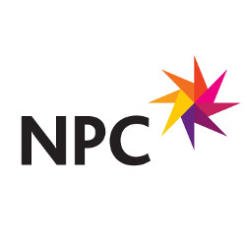Charities need to start planning their response to expected cuts to local authority funding and should consider more mergers and collaborative working to win contracts, according to a new report by the charity think tank NPC.
The report says charities face a “perilous future” unless they collaborate on bidding for local authority contracts and share research on the impact of their work.
The report called The Chancellor’s Choice: Preparing the Charity Sector for the Autumn Spending Review, is published today ahead of Chancellor George Osborne’s autumn spending review on 25 November.
It warns that planned cuts of up to 30 per cent by the Department for Communities and Local Government over the next five years could place small community charities with local expertise “at a serious disadvantage in local authority commissioning”.
NPC consultant and report author George Hoare warned of "troubled times ahead".
"Charities have to plan. They can’t just worry and do nothing," he told Civil Society News. "Many charities do reply on help from government funding. And if you cut what’s available then charities' finances will be increasingly uncertain."
“Boards and staff will need a strategic response, whether this means doing more in collaboration with others, or cosying-up to local politicians who will make key decisions on where the money goes."
But he said the challenges "aren’t insurmountable".
Recommendations by NPC include the need for charities to think in terms of bigger contracts through merging and building consortia to compete against national organisations.
"The point isn’t just about public funding," said Hoare. "Charities must look at other ways to deal with changes, so small charities need to come together to bid for contracts and cooperate more on what’s the most effective help for their beneficiaries."
Hoare said charities should learn from recent high-profile charity collapses, including Kids Company, BeatBullying, Eaves and BAAF.
"Trustees and senior staff need to be looking at these examples and committing to make sure that their charity isn’t next," he said.
The report also calls for charities to share data about the effectiveness of their work - in particular domestic violence, mental health and homelessness charities.
"Collaborative approaches to shared measurements are really important," Hoare said. "Otherwise you have a cycle where you don’t have enough funding so you can’t do enough research. Then you can’t preview impact, so you can’t get funding at first stage commissioning."
‘Abysmal commissioning’
The report comes two weeks after the closure of women’s charity Eaves, which closed citing “abysmal commissioning”.
In a blog for Civil Society News, Polly Neate, chief executive of Women’s Aid, said the closure of Eaves was “just the latest victim of a crisis in contracting”.
“Wherever you stand on the politics and policies of austerity, the crisis in the women’s sector is not simply about government cuts,” she said.
“Of course, public services and charities are short of money. But a major contributor to the demise of Eaves was the desire of large national charities to use local commissioning and competitive tendering processes as vehicles for expansion,” she said.








